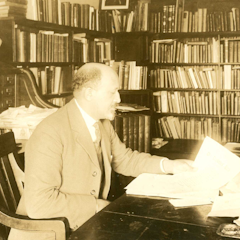
Articles on African science
Displaying 1 - 20 of 32 articles

The astronomical community has thrived and world-class astronomical facilities have been established in South Africa.

Sagittarius A* lies in the southern sky, passing directly above South Africa.

Impact craters are relatively shallow, so these bowl-shaped “dents” in Earth’s rocky crust can be easily buried or erased by erosion.

She believed and advocated that Africa needs to find solutions to its own problems and worked tirelessly to build biomedical engineering capacity across the continent.

As editor of the magazine for 24 years, Du Bois featured articles about biology, evolution, archaeology in Africa and more to refute the rampant scientific racism of the early 20th century.

Thanks to major science infrastructure, human resource training and education investment in African nations, the continent is well placed to lead from the front.

Data science, led by Africa-based scientists, could play a key role in addressing all of the continent’s crucial needs.

Science academies have a crucial role to play in developing ways for scientists to engage more effectively.

Because the interactions between trees, soils, crops and livestock can be positive or negative, their relationship must be balanced and understood.

Genomics research is crucial to identify Africa-specific solutions to a range of diseases.

Science development in Africa is intimately linked to the quality of people who are able to lead change.

Senegal has made great strides in astronomy and planetary sciences in recent years.

With the right investment, the next few years could be extremely exciting for Nigerian neuroscience.

The Global State of Young Scientists Africa project investigates the challenges that shape the career trajectories of young African scientists.

There are several projects and initiatives that offer hope amid all the bad news about African science.

Research institutes and “centres of excellence” exist around the world to draw talent and to share resources - all with the aim of solving important problems.

Calestous Juma believed that Africa needed an integrated science, technology and innovation framework. The continent can make this happen.

A precursor to the Square Kilometre Array- the MeerKAT telescope - is being built right now and remarkable progress has been made in the last 12 months.

Africa’s overall contribution to research might be small, but smart people are undertaking smart and important work on and about the continent.

It’s important that South African teachers, lecturers and professors develop curricula that build on the best knowledge skills, values, beliefs and habits from around the world.
